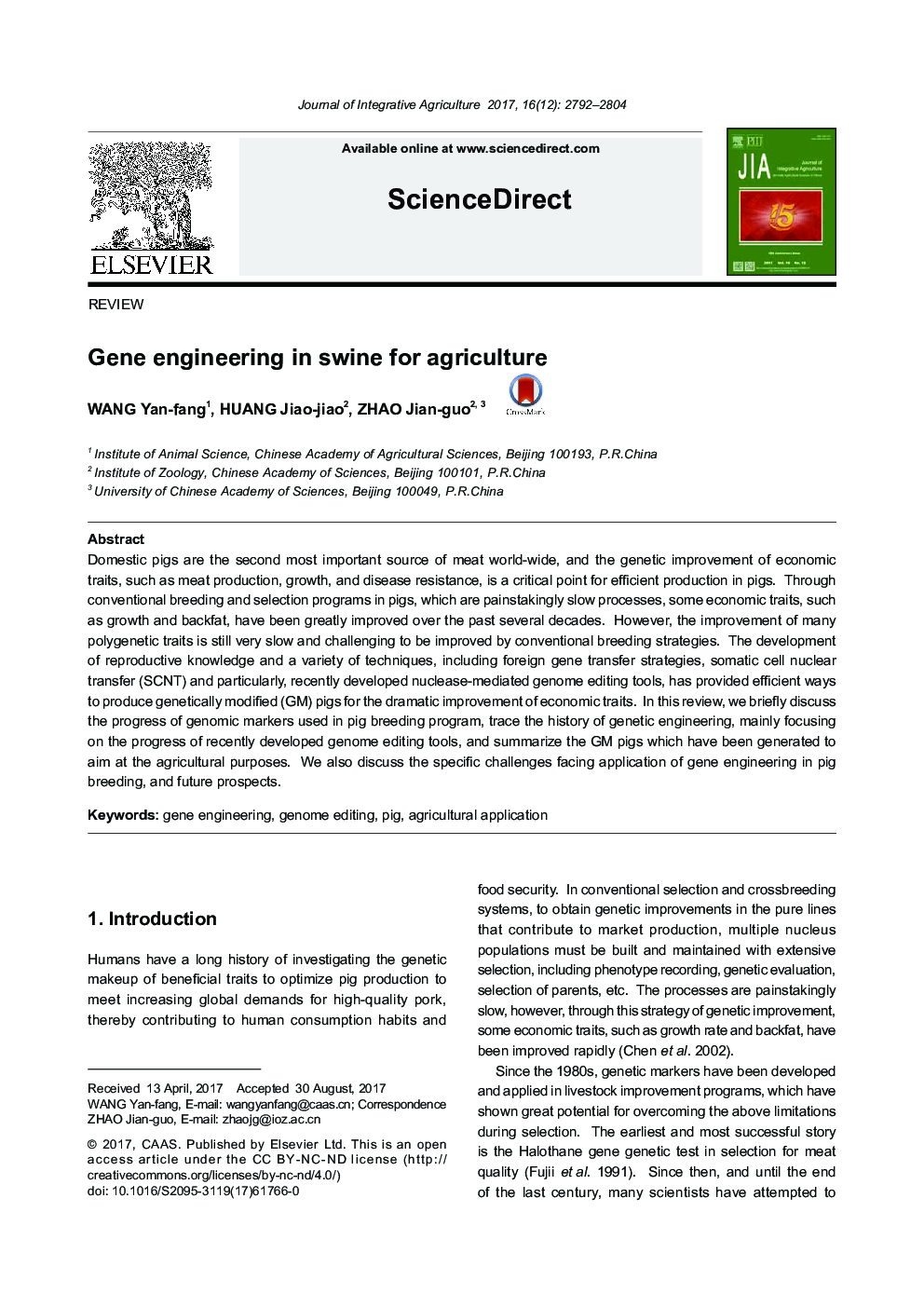| Article ID | Journal | Published Year | Pages | File Type |
|---|---|---|---|---|
| 8875777 | Journal of Integrative Agriculture | 2017 | 13 Pages |
Abstract
Domestic pigs are the second most important source of meat world-wide, and the genetic improvement of economic traits, such as meat production, growth, and disease resistance, is a critical point for efficient production in pigs. Through conventional breeding and selection programs in pigs, which are painstakingly slow processes, some economic traits, such as growth and backfat, have been greatly improved over the past several decades. However, the improvement of many polygenetic traits is still very slow and challenging to be improved by conventional breeding strategies. The development of reproductive knowledge and a variety of techniques, including foreign gene transfer strategies, somatic cell nuclear transfer (SCNT) and particularly, recently developed nuclease-mediated genome editing tools, has provided efficient ways to produce genetically modified (GM) pigs for the dramatic improvement of economic traits. In this review, we briefly discuss the progress of genomic markers used in pig breeding program, trace the history of genetic engineering, mainly focusing on the progress of recently developed genome editing tools, and summarize the GM pigs which have been generated to aim at the agricultural purposes. We also discuss the specific challenges facing application of gene engineering in pig breeding, and future prospects.
Related Topics
Life Sciences
Agricultural and Biological Sciences
Agricultural and Biological Sciences (General)
Authors
Yan-fang WANG, Jiao-jiao HUANG, Jian-guo ZHAO,
